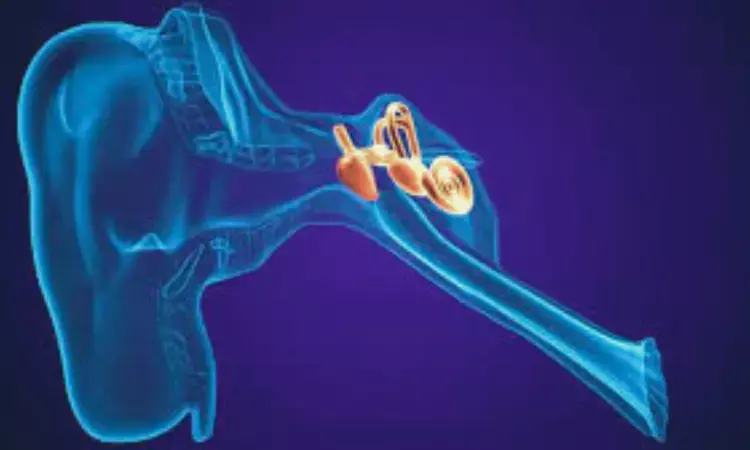- Home
- Medical news & Guidelines
- Anesthesiology
- Cardiology and CTVS
- Critical Care
- Dentistry
- Dermatology
- Diabetes and Endocrinology
- ENT
- Gastroenterology
- Medicine
- Nephrology
- Neurology
- Obstretics-Gynaecology
- Oncology
- Ophthalmology
- Orthopaedics
- Pediatrics-Neonatology
- Psychiatry
- Pulmonology
- Radiology
- Surgery
- Urology
- Laboratory Medicine
- Diet
- Nursing
- Paramedical
- Physiotherapy
- Health news
- Fact Check
- Bone Health Fact Check
- Brain Health Fact Check
- Cancer Related Fact Check
- Child Care Fact Check
- Dental and oral health fact check
- Diabetes and metabolic health fact check
- Diet and Nutrition Fact Check
- Eye and ENT Care Fact Check
- Fitness fact check
- Gut health fact check
- Heart health fact check
- Kidney health fact check
- Medical education fact check
- Men's health fact check
- Respiratory fact check
- Skin and hair care fact check
- Vaccine and Immunization fact check
- Women's health fact check
- AYUSH
- State News
- Andaman and Nicobar Islands
- Andhra Pradesh
- Arunachal Pradesh
- Assam
- Bihar
- Chandigarh
- Chattisgarh
- Dadra and Nagar Haveli
- Daman and Diu
- Delhi
- Goa
- Gujarat
- Haryana
- Himachal Pradesh
- Jammu & Kashmir
- Jharkhand
- Karnataka
- Kerala
- Ladakh
- Lakshadweep
- Madhya Pradesh
- Maharashtra
- Manipur
- Meghalaya
- Mizoram
- Nagaland
- Odisha
- Puducherry
- Punjab
- Rajasthan
- Sikkim
- Tamil Nadu
- Telangana
- Tripura
- Uttar Pradesh
- Uttrakhand
- West Bengal
- Medical Education
- Industry
Is intratympanic oxytocin effective for treating cisplatin induced ototoxicity? Study sheds light

Turkey: In a groundbreaking experimental study, researchers have compared the effectiveness of intratympanic oxytocin and dexamethasone in combating cisplatin-induced ototoxicity, a common side effect of cisplatin chemotherapy.
The study, published in the Indian Journal of Otolaryngology and Head & Neck Surgery, revealed that intratympanic oxytocin may be an option that can be used in the treatment, however, it is not as effective as dexamethasone in preventing cisplatin ototoxicity.
Cisplatin is a potent chemotherapy drug widely used in treating various cancers. However, its clinical utility is limited by ototoxicity, characterized by irreversible damage to the inner ear structures, leading to hearing loss and balance disorders. Traditional treatments for cisplatin-induced ototoxicity, such as systemic steroids, have shown limited efficacy and significant side effects.
Although widely used, there is still no valid treatment for ototoxicity caused by the antineoplastic drug cisplatin. In the study, Burak Mustafa Taş, Kırıkkale University School of Medicine, Kırıkkale, Turkey, and colleagues aimed to investigate the efficacy of intratympanic resveratrol and intratympanic dexamethasone treatment in cisplatin-induced cytotoxicity. They also compared intratympanic atosiban (oxytocin antagonist) and oxytocin in cisplatin ototoxicity.
The study separated 30 rats (60 ears) into five groups. Cisplatin, dexamethasone, oxytocin, atosiban, and 0.9% NaCl were administered intraperitoneally to all groups separately. On all the groups, Auditory Brainstem Response and Distortion Product Otoacoustic Emission tests were performed before and 72 hours after the procedure.
Following were the study’s key findings;
- Pre-treatment values were higher than post-treatment values in all groups.
- There was no significant prolongation of the post-treatment Auditory Brainstem Response I-IV interval in the oxytocin and dexamethasone groups.
- There was no significant decrease in the frequencies of 2832 and 4004 after treatment in the oxytocin and dexamethasone group compared to pre-treatment in Distortion Product Otoacoustic Emission.
These findings suggest that intratympanic oxytocin holds promise as a novel therapeutic approach for the prevention of cisplatin-induced ototoxicity. Oxytocin, known for its role in social bonding and stress regulation, may exert protective effects on the inner ear through its anti-inflammatory and antioxidant properties.
The investigators believe that further research is warranted to elucidate the underlying mechanisms of oxytocin-mediated cochlear protection and to optimize dosing regimens for clinical translation. If validated in human studies, intratympanic oxytocin could offer a safer and more effective alternative to traditional treatments for cisplatin-induced ototoxicity, potentially improving the quality of life for cancer patients undergoing chemotherapy.
Reference:
Taş, B.M., Özel, G., Azman, M. et al. Comparison of Intratympanic Oxytocin and Dexamethasone in Cisplatin Ototoxicity: An Experimental Study. Indian J Otolaryngol Head Neck Surg (2024). https://doi.org/10.1007/s12070-024-04701-z
Dr Kamal Kant Kohli-MBBS, DTCD- a chest specialist with more than 30 years of practice and a flair for writing clinical articles, Dr Kamal Kant Kohli joined Medical Dialogues as a Chief Editor of Medical News. Besides writing articles, as an editor, he proofreads and verifies all the medical content published on Medical Dialogues including those coming from journals, studies,medical conferences,guidelines etc. Email: drkohli@medicaldialogues.in. Contact no. 011-43720751


